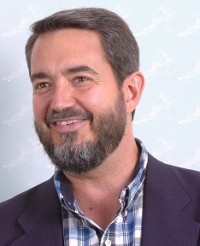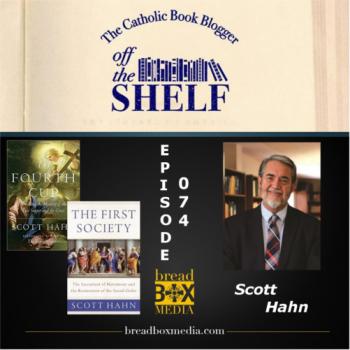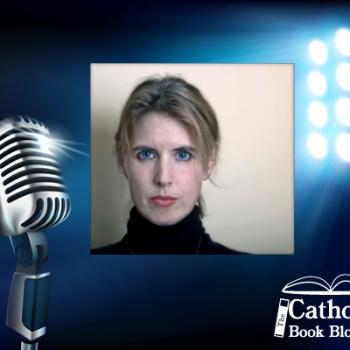 PETE: Of the numerous books you have written this is your first on Christmas. What drew you to writing Joy to the World?
PETE: Of the numerous books you have written this is your first on Christmas. What drew you to writing Joy to the World?
SCOTT HAHN: Christmas! I hardly need another reason. Christmas is the holiday that even secularists can’t give up. Yet it’s so much more than they know. It’s more than the sales, more than the TV specials, more than the family togetherness. It’s the turning point in history. It’s a crisis — a drama of epic proportions involving world rulers and their armies, astronomical spectacles, and abundant bloodshed. If any movie did justice to the history, there’s no way it would get a G rating.
I wanted to write a book that did justice to the history. I wanted to give the world a vivid record of the crisis as it took shape the moment B.C. turned to A.D.
Besides, I think everybody senses that our world is facing a similar set of crises – now more than ever – so people need to rediscover how Jesus can give us hope for hard times, especially for raising our families. And not just hope, but real joy, lasting joy.
PETE: An observation on my part. Your writing style has seemed to change over the years. In recent books you tend to include more reflections as related to family experiences. One such instance is in the first chapter of Joy to the World when you talk about your daughter Hannah with the babies in the Bethlehem orphanage. Has this occurred intentionally or just a natural flow from life’s experiences?
SCOTT HAHN: Well, as you grow in marriage and parenting, you have more to talk about and more experiences to draw from. I wrote my first book almost twenty years ago. I’ve seen a lot of parenting and grand-parenting since then!
I suppose, too, that the older we get, the more we see our own lives as part of time’s ever-rolling stream — part of the biblical drama that’s still playing itself out in all of our lives. That realization is hard to suppress in my non-academic writing. Besides, my understanding of sacred Scripture has always been shaped by the central biblical notion of the covenant-as-family, which is never reducible to academic theory. Covenant theology doesn’t just make better sense out of Scripture, but of everyday life as well. In a similar way, I find that my experiences as a father of six, and now a grand-father of eleven, also shed a lot of light on what God Himself does in fathering His family.
PETE: Lent seems to get all the attention in the liturgical calendar as far as spiritual reflection goes. Do you think Advent should get the same consideration?
SCOTT HAHN: Yes. Since you’ve already read my book, you know that I talk about the age-old theological debate about the relative importance of Christmas and Easter. In fact, I’m convinced that Advent may be the most under-rated and unappreciated season of the whole liturgical calendar. But since I want people to read the book, I’ll leave it at that for now!
PETE: Time for my signature ending question. Heading through Advent….what is currently on your bookshelf to read?
SCOTT HAHN: Unfortunately, I have to get through a mountain of final exams and papers in the next couple weeks, but after that, I have a small stack of books that I look forward to reading, including one by my good friend, Matthew Levering, Engaging the Doctrine of Revelation: The Mediation of the Gospel through Church and Scripture, and another by one of my favorite non-Catholic biblical scholars, Richard B. Hays, Reading Backwards: Figural Christology and the Fourfold Gospel Witness. Finally, I look forward to a close reading of the amazing collection of articles on “Christ and the Unity of Scripture,” in the latest issue of Letter & Spirit: A Journal of Catholic Biblical Theology.
___________________________________________________________________________________________
Other books by Scott Hahn:
A Father Who Keeps His Promises: God’s Covenant Love in Scripture
The Lamb’s Supper: The Mass as Heaven on Earth
Evangelizing Catholics: A Mission Manual for the New Evangelization











